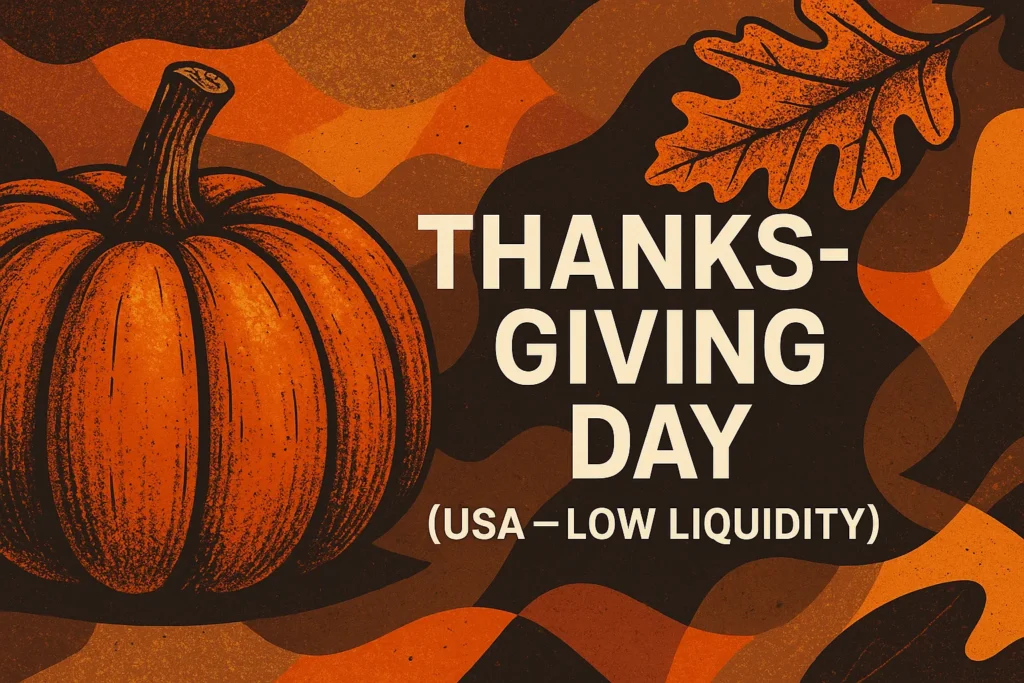Market Significance
Low Liquidity Alert: Thanksgiving Day significantly impacts financial markets globally due to the closure of all U.S. exchanges, creating a low liquidity environment.
- All U.S. stock markets (NYSE, NASDAQ) are closed for the entire day
- U.S. bond markets are closed
- CME Globex has limited hours for futures and options trading
- The day after Thanksgiving (Black Friday) typically features early closures for U.S. markets
The reduced trading volume during this period can lead to increased volatility and wider bid-ask spreads in related international markets, as major market participants are absent.
Trading Considerations
The Thanksgiving holiday creates a four-day weekend effect in markets, with Wednesday often showing pre-holiday trading patterns and Friday operating on a reduced schedule. Global markets remain open but may experience reduced liquidity due to the absence of U.S. participants.
Who Should Be Aware
This event is particularly important for:
- All traders active in U.S. markets
- International traders whose assets correlate with or are influenced by U.S. markets
- Algorithmic trading systems that need holiday calendar adjustments
- Risk managers planning for potential liquidity gaps
- Traders holding positions over the holiday period who should prepare for potentially wider spreads
Historical Context
Thanksgiving has been officially observed as a federal holiday in the United States since 1863, when President Abraham Lincoln proclaimed a national day of thanksgiving. From a market perspective, this established holiday consistently affects trading calendars and creates predictable liquidity patterns each year.
While this is primarily a market closure event rather than a tradable occasion, being aware of the reduced liquidity and adjusted trading hours is essential for proper risk management and trading strategy adjustments.
